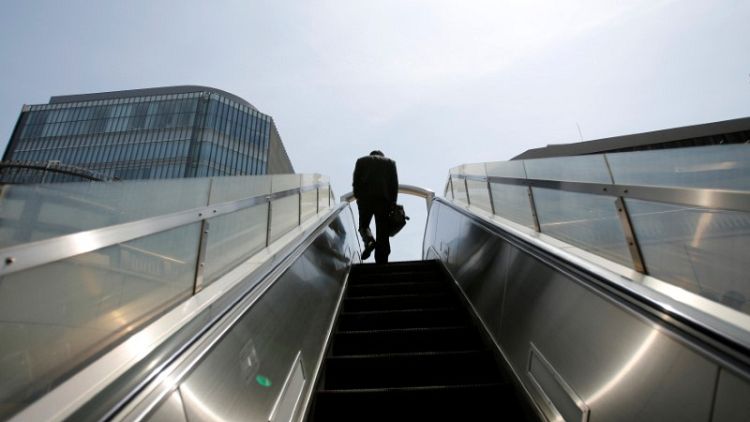TOKYO (Reuters) - Japanese inflation-adjusted real wages rose in December from a year earlier and were up slightly for the whole of 2018, government data showed, in a sign that improved incomes may help underpin consumer spending as external risks rise.
The government has defended its view that incomes are improving, despite a scandal over faulty polling methods that have led to a downward revision in real wages - a key gauge of measuring workers' disposable income and success of Prime Minister Shinzo Abe's economic policies.
Friday's data, based on an improved sampling method, showed inflation-adjusted real wages in December rose 1.4 percent from a year earlier, following a 0.8 percent gain in November.
For the whole of last year, real wages rose 0.2 percent, reversing from a 0.2 percent decline in the previous year.
Abe's government has argued that his "Abenomics" policies have helped push up wages to stoke a virtuous cycle of growth, but the polling scandal has raised doubts about such claims and hurt the credibility of one of Japan's closely watched indicators.
Last month, the labour ministry said it used faulty polling methods in compiling monthly wage data - which covers about 33,000 firms - failing to accurately depict the actual strength of wage growth.
The error added to last year's sample changes that boosted average pay calculations, making it harder to follow the wage trend.
The monthly wage data showed nominal total cash earnings grew 1.8 percent in the year to December, following a 1.7 percent gain in November.
Regular pay, which accounts for the bulk of monthly wages, rose 0.9 percent in the year to December, slowing from a 1.3 percent increase in November.
One-off special payments grew 2.7 percent, in a sign of a steady increase in winter bonuses, which are paid during the bonus months from November to January.
Overtime pay, a barometer of strength in corporate activity, fell 1.0 percent in December, down for the first time in three months, the data showed.
(Reporting by Tetsushi Kajimoto; Editing by Jacqueline Wong)



